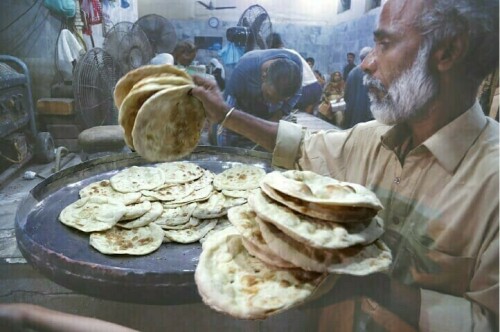ISLAMABAD: No lit fest is complete with a discussion on literature’s place in a liberal arts education. The session on ‘What’s Liberal about Liberal Arts?’ explored how the fundamental focus of liberal arts courses is not the content, rather the approach, analysis and research methodology adopted.
Framji Minwalla, chair of the liberal arts department at IBA Karachi explained that the difference between a liberal arts education and an education in the sciences what the vocabulary they were taught in, and the mode of thinking that students were conditioned into.
Aliya Iqbal-Naqvi, the moderator, shared the results of a recent survey, which found that most employers in the US valued the ability to learn in the workplace more critically than any other specific skill. Mr Minwalla added that there was now increased mobility between jobs and work sectors and while his own generation shifted between five to six jobs over their careers, the estimated number of jobs the current generation would go through was around 12 to 15.
He used examples from IBA to show how students have been designing courses that give them the space to explore, analyse and critique. There is pressure from parents to push their children into courses that guarantee secure employment opportunities, but he said this was also gradually changing.
Novelists discuss their inspirations for characters, the stories they invent
The genesis of the ‘liberal’ in liberal arts, as an audience member pointed out, did not entail a departure from the natural sciences, rather signified a separation of education from the influence of the church or theology.
Both the moderator and Mr Minwalla noted that developing students’ analytical and critical sensibilities was crucial for Pakistan so that future generations may realise their potential and called for systems of education that encourage thinking – as opposed to a (quantitative) education system, which is the greatest obstacle to learning – is the way forward.
“Literature in particular is a means of developing perspective and the ability to explore nuances and motivation.”
Later in the day, he moderated ‘Subjunctive Fictions: Stories We Invent about the World We Inhabit’. Here, the academic was in conversation with three novelists who discussed the worlds within their novels, the writing process and their inspirations.
Piyush Jha, a Mumbai-based filmmaker and crime-fiction author, said that he based his characters on people he knew in Mumbai. As a student leader at university, he claimed to have met with all sorts of people, who populated his films and books.
Jha’s films, including Chalo America, King of Bollywood and Sikandar, are noted for their unconventional subject matter and relevance to contemporary society.
British-Pakistani novelist and screenwriter Qaisra Shahraz, has based her novels in Pakistan, where she lived until she was nine; and Morocco, a country she researched thoroughly. She said that she was fortunate to have memories of Pakistan – unlike her siblings who were born in the UK – drawing from which made her more confident of the authenticity of the stories she located there.
Ms Shahraz has appeared at several international literary festivals and book fairs; a marketing aspect of her career as an author that she believes takes a substantial amount of time away from her writing. She also felt that she had more time to bond with the characters and plot of her first book, which she wrote by hand and had her assistant type, than the later ones, which were marred by the constant interruptions of social media. As an author who is active on Twitter and Facebook as well as checking her emails frequently, she said her writing process was now constantly interrupted.
Shehryar Fazli is a novelist whose day job is with the International Crisis Group. His first novel, Invitation, was a bestseller in India and Pakistan. Inspired by the look on the faces of his parents and their contemporaries when they spoke of the Karachi of the 1970s, he said he had decided to write a book set in that period.
“Within the world of fiction, the desire of the reader is to reach a conclusion – while some modern authors are experimenting with form and style, a story, unlike life, is typically plotted – there is a beginning, middle and end.”
Published in Dawn, April 17th, 2016















































Dear visitor, the comments section is undergoing an overhaul and will return soon.